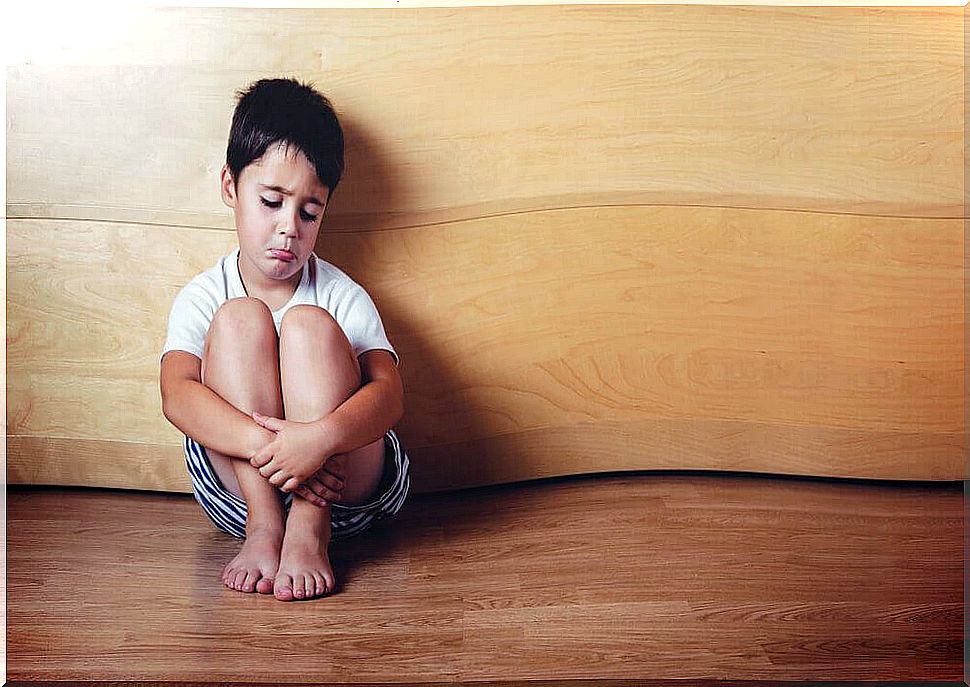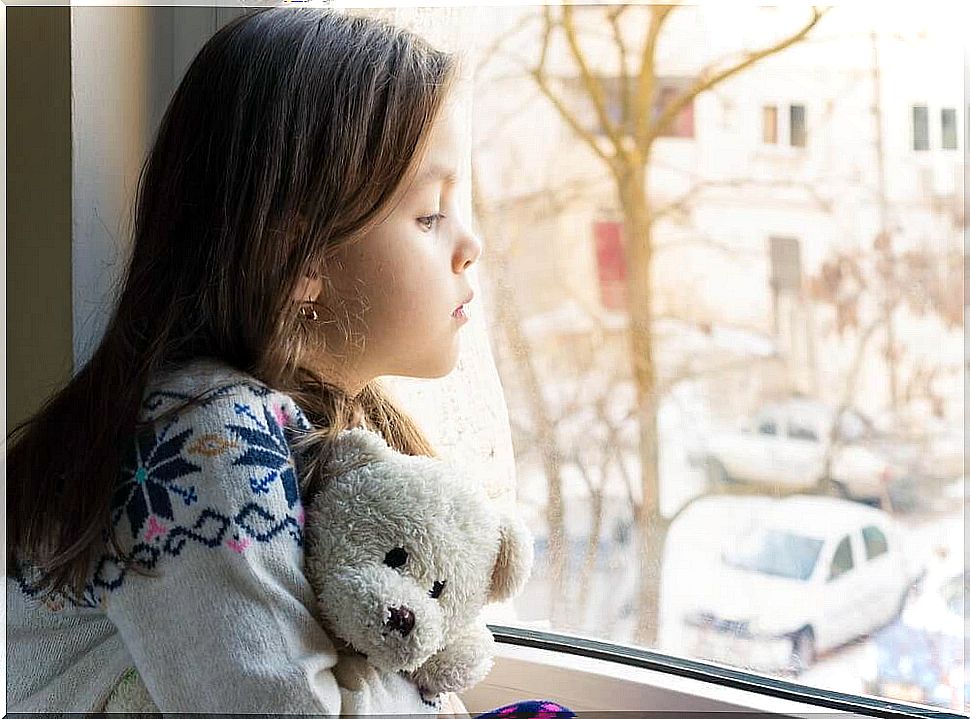6 Signs Of Affection In Children

Kisses, hugs, caresses and advice are signs of affection that parents should show their children to avoid lack of affection in children.
It’s not by whim or dependence; treating our little ones with affection contributes to a good psychosocial development. In childhood, the child is almost entirely dependent on parents or responsible adults. Not only from a financial or educational point of view, but also from an emotional and psychological point of view.
There is nothing more rewarding than a parent showing affection, love and understanding for their children. However, this is not the case in all homes. Many children lack affection, whether because of the family or the environment around them. When this happens, the consequences of lack of affection appear, which directly influences their behavior.
What are the signs of affection in children?
During childhood, children need displays of affection from those closest to them not only to feel loved and protected, but also to properly develop as social beings.
However, in some cases this affect is absent and this has its consequences. There are also cases of children who receive some displays of affection in early childhood, but as they grow older, the parents tend to show less affection.

Occasionally, long work hours and a busy, modern lifestyle make adults forget some of their family obligations, including showing their children loving gestures that reinforce how important they are.
The lack of affection in children makes them feel constantly lonely or abandoned. Furthermore, it weakens communication between parents and children and can have negative repercussions on their self-esteem.
So, to find out if he needs you to show him more affection, pay attention to the following points collected by Revista Chilena de Neuropsychiatria:
- He is a problematic child and has difficulty interacting with other people.
- You are always on the defensive and alert to what is happening around you.
- She suffers from childhood stress.
- Your immune system is weak due to your high level of depression.
Among the ways to externalize this, children give the following signs.
1. Disobedience
From the lack of affection in children, there is a need to receive attention. To be the center of attention, children tend to disobey their parents’ orders and exhibit inappropriate behavior such as tantrums and crying in public places.
Children who want love and attention from their parents often make scenes, and if they don’t reach their goal, the attacks increase in intensity and frequency. Typical signs of disobedience in children are:
- Will
- Aggressiveness
- impulsivity
- exaggerated cries
- sudden mood swings
2. Aggressiveness

When children are aggressive, it ‘s best to listen to them and follow expert advice. Likewise, it is important to know how to give importance to what they say. That way, they will feel taken into account and will be confident enough to say what concerns them.
3. Insecurity
According to psychology experts at the Center London, given the emotional emptiness and lack of affection, children feel unprotected, making them afraid to interact with other people.
Because they don’t feel safe and constantly fear for their physical integrity, they are always defensive and very alert to what happens in their environment. Therefore, distrust is a clear sign that something is not going right.
4. Fear: a sign of affective need in children
Affectionate needs in children who are not treated by a specialist, or those that the child cannot overcome, can generate a feeling of emptiness and mistrust that will be present in relationships as they grow up.
The fear of abandonment is acquired by little ones when they do not receive the affection they need from their parents and relatives. This pattern is difficult to leave behind, and it is often necessary to take the child to a psychologist or family therapist to help them overcome their fear and strengthen the parent-child relationship.
5. Low academic performance
Lack of attention and affection in children can result in learning disorders and lack of motivation when doing homework. According to data from a survey conducted at the University of Babahoyo, children who suffer from affective deficiency have language problems and poor school performance.
They typically take longer than other children to develop language and have few social skills. They censor their emotions and generally avoid any kind of affection with those around them.
6. Attachment to electronic devices

Some parents choose to let the digital nanny take care of their children. This tendency to let children be distracted by electronic devices or watching television creates an impersonal parenting method. This includes the little ones in a technological bubble that leaves human interaction aside. And over time, they create a technological dependency.
The risk of affective deficiency in children
The lack of affection in children makes them develop a fear of losing their parents and caregivers. The result is that the child is always alert to what is happening around him.
Babies who grow up in a home with a lack of affection remain in a state of permanent anxiety. They are always looking for affective relationships that satisfy their needs to feel loved and secure. It is necessary to take into account that children require constant displays of affection and affection, such as caresses, kisses and hugs to grow.
Signs of affection are decisive in shaping your personality and benefiting your brain maturation. Without these displays of affection, the child’s neuronal development is not complete and his cognitive abilities are weakened.
Lack of affection can generate an insecure personality, characterized by emotional immaturity, selfishness and identity problems. When children grow up in a loveless environment, they have trouble maintaining stable interpersonal relationships – and they often have major value conflicts.









